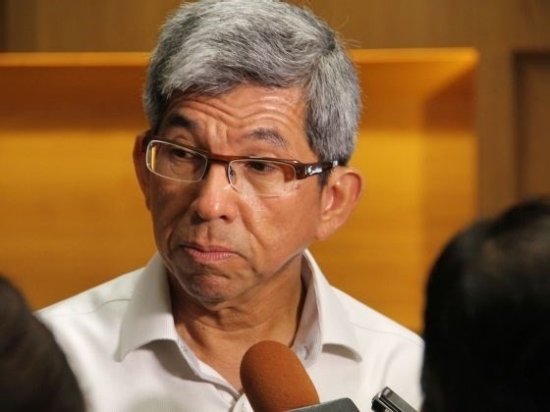28 Apr 2016

PUBLISHED: 9:05 PM, APRIL 28, 2016
UPDATED: 9:20 PM, APRIL 28, 2016
SINGAPORE — Noting that a “conciliatory approach towards finding common ground” has helped in fostering a harmonious relationship among the various communities in the Republic, Minister-in-charge of Muslim Affairs Yaacob Ibrahim said exclusivists who assert that one culture has absolute superiority to the exclusion of others are not welcome here.
“Exclusivist teachings cause mistrust to deepen not only between different religious traditions, but also of the life-affirming values within these traditions,” he said on Thursday (April 28).
Dr Yaacob added that Singapore’s approach is such that Muslims can hold steadfast to their religious traditions while contributing to the growth and development of the country.
“Here in Singapore, we endeavour to take into account the lived realities of Muslims who build their future in a multicultural society and a secularly-governed nation,” he said.
Dr Yaacob, who is also Minister for Communications and Information, was speaking at a conference, Islam In The Contemporary World, organised by the S Rajaratnam School of International Studies. The conference brought together leading scholars of Islam to address the current challenges faced by Muslim societies worldwide.
This was the second time that Dr Yaacob had spoken on the need for progressive religious thinking in a multiracial society.
During the Committee of Supply debate in Parliament about two weeks ago, Dr Yaacob, pointing to Singapore’s more diverse socio-religious landscape, said the Malay-Muslim community has a duty to learn about other cultures, religions and societies so that a consensus on finding the best solutions could be reached.
At Thursday’s conference, Dr Yaacob pointed out that in Singapore, the Administration of Muslim Law Act has led to the creation of the Islamic Religious Council of Singapore, which looks after the interests of Muslims here.
The Government, he said, has a role to play in creating an environment where its policies “encourage awareness and respect for cultural diversity and ensure equality of opportunities”.
Dr Yaacob noted that while the essence of religious teachings is to do good on earth and to each other, “differences may continue to emerge, especially in this hyper-connected and increasingly complex world”.
“It is therefore important to deal with irreconcilable differences in a calm, rational and dignified manner ... It is by embracing such differences that we can foster creative coexistence,” Dr Yaacob said.
The conference, held at the Nanyang Executive Centre at the Nanyang Technological University, also saw former Iraqi Defence and Finance Minister Ali Allawi talk about the pathways of modern Islam.
“Modern Islam can be traced back to a set of events and personalities somewhere in the mid-19th century ... and has generated ideas and precepts that have entered common culture, and have informed the perspectives and consciousness of large numbers of people,” said Dr Allawi.
He added that modern Islam, which encompasses the notion of both modernist and radical Islam, has “favoured the political in its attempts to forge a meaningful and sustainable response to the challenges of the modern world”.
“It is the political, broadly understood and interpreted, that has defined modern Islam, more than theology, culture or societal relations,” said Dr Allawi.
During the panel discussions, other experts at the conference spoke on issues such as how Islamic thought can evolve and enhance its relevance for international relations in the contemporary world.